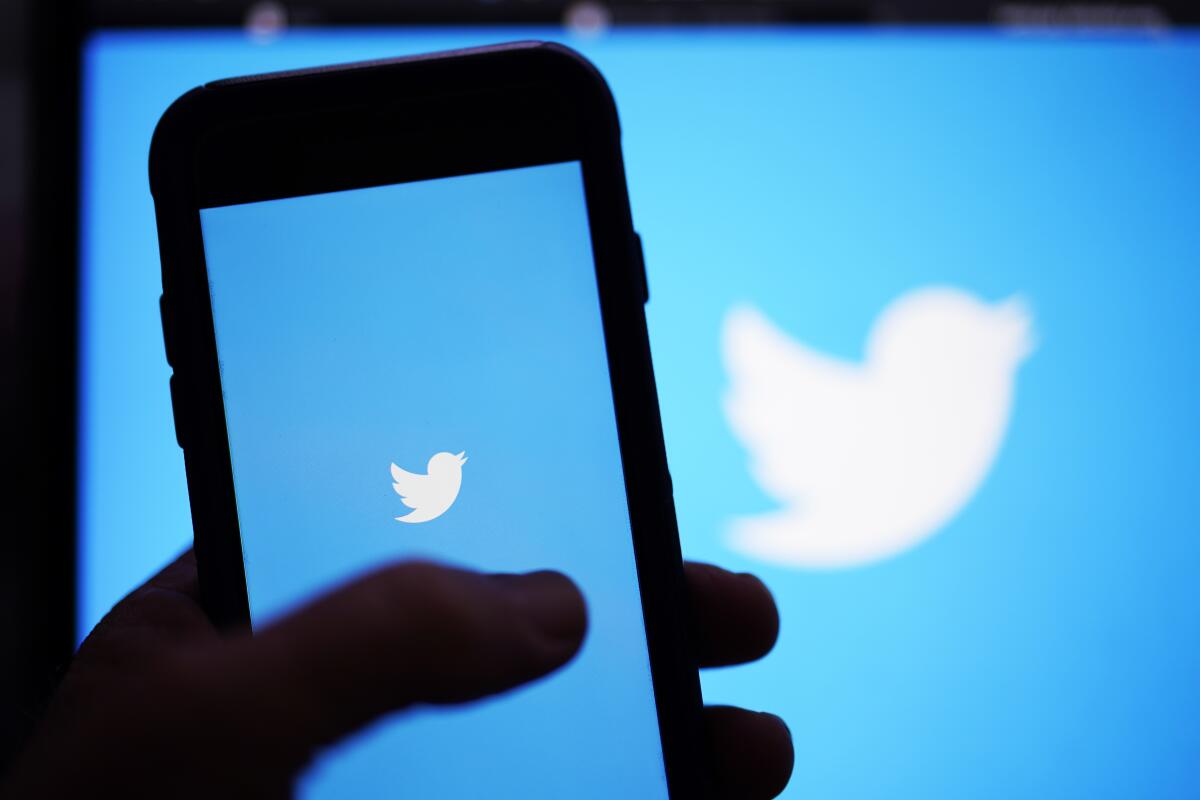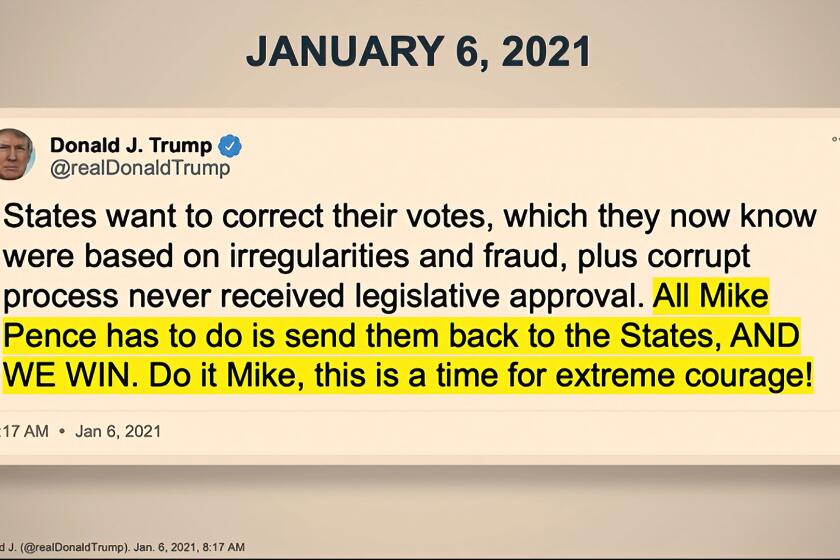Op-Ed: How Elon Musk’s plans for Twitter could threaten free speech

- Share via
As he prepares to take over Twitter, Elon Musk has said that, in the name of upholding free speech, he will dial back safeguards on the platform that are there to protect against disinformation. This would be a mistake, and not just because disinformation has fueled a crisis of faith in democracy and impeded pandemic response at the cost of hundreds of thousands of lives.
Disinformation, though largely protected by the 1st Amendment against government control, can also imperil free speech itself. If Musk is serious about fostering open discourse, he needs to account for the dangers that disinformation poses to expression as he takes over one of the world’s most influential online platforms.
How can disinformation threaten free speech if it is a form of free speech? To answer that question, we need to recall why we protect free speech in the first place. It’s not just because people like to be able to spout their opinions or because the founders thought it was important. Free speech is protected in the Bill of Rights and in global instruments like the Universal Declaration of Human Rights because it has long been recognized as necessary to create open and democratic societies.
The current fad for ‘longtermism’ reminds me of my teen wish for digital immortality. It didn’t end well.
Going back to its origins in ancient Greece, free speech has been about more than the right to have your say, but also the right to persuade, to listen and be heard, to deliberate with fellow citizens, to seek and find the truth in democratic self-government. Subsequent thinkers and Supreme Court opinions have identified other virtues of free speech: as a societal safety valve that helps prevent bottled up frustrations from erupting into violence; as a catalyst for social, scientific and economic progress; and as a prerequisite for vindicating other individual liberties. If policies adopted in the name of free speech impair rather than advance those ends, they may not be speech-friendly.
When arenas for public discourse are flooded with disinformation, free speech begins to shed its value. If audiences lose their grip on what is true and what is false, they can become primed to distrust everything and it becomes impossible to persuade people, even with the most compelling argument or evidence. If platforms are riddled with propaganda and political falsehoods aimed to skew election results, prospects for genuine discourse on matters of public policy or local affairs evaporate. If the search for reliable information yields nothing but a morass of comingled facts and falsehoods, people eventually stop searching.
That disinformation is a threat to free speech does not mean that governments should step in to ban it. We might all agree that certain social media posts constitute disinformation; for example, messages by Russian government bots in 2016 that discouraged Americans from voting. But not all disinformation is a matter of consensus. What former President Trump labeled “fake news” generally consisted of factual journalism that did not make him look good.
The 1st Amendment prevents the government from suppressing most forms of disinformation because the Supreme Court has recognized that if permitted to regulate such speech, authorities would not be able to resist the temptation to use that power in self-serving ways, to silence critics and repress dissent.
If Elon Musk wants Twitter to be a home for demagogues, bigots and liars, that’s his choice. But he’ll be making a mistake.
But the 1st Amendment doesn’t apply to social media companies since it only constrains the power of government. Online platforms can, for the most part, decide whether to suppress speech. But with platforms such as Twitter, Facebook and Google so widely used, the place of free speech as an underpinning of society is at stake in their choices. Moreover, in a world powered by algorithms, speech moves differently than it did in an era of printed pamphlets and town meetings. Studies have shown that, on Twitter, disinformation travels faster and farther than truth.
Today, Twitter has policies that aim to slow that spread. The company uses crowdsourced fact-checking, labeling, crowdsourced tagging of misleading posts and other approaches to cull back disinformation. Their methods are not perfect, and there have been incidents — including the platform’s decision to remove stories about Hunter Biden’s laptop that emerged right before the 2020 Presidential vote — that raised questions about how politics influences which posts stay and which go.
If Musk is serious about enhancing Twitter’s potential as a vehicle for free speech, he should focus on how to make the platform a hospitable place for dialogue, truth-seeking, citizen’s engagement — things at the heart of why free speech matters. Some of the steps he reportedly contemplates, including giving users more control over what they see on the platform, could help. So could improving Twitter’s system for appealing the removal of tweets and disabling of accounts, clearer communications about which rules posts are found to violate and why, and greater transparency to allow researchers to study the platform and determine whether and how political biases may infect content moderation.
But if Musk follows through on his promise to create open season for disinformation on Twitter he will risk destroying free speech in one of our global villages in the name of trying to save it.
Suzanne Nossel is chief executive of PEN America and author of “Dare to Speak: Defending Free Speech for All.”
More to Read
A cure for the common opinion
Get thought-provoking perspectives with our weekly newsletter.
You may occasionally receive promotional content from the Los Angeles Times.












